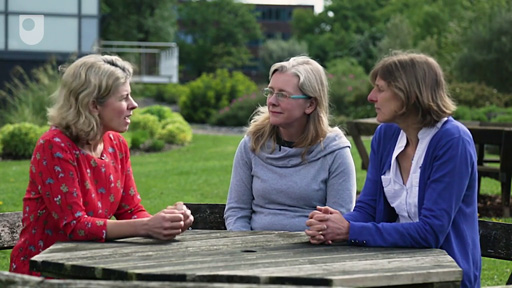4.2 Communities of practice that support SoTL
A community of practice (CoP) is a group of people who share a concern or a passion for something they do and learn how to do it better as they interact regularly (Wenger-Trayner and Wenger-Trayner, 2015). A CoP has an identity defined by shared domain of interest in which the members pursue their initiatives in the domain, and engage in joint activities and discussions, share information and learn from each other. A CoP arises naturally in organisational life, and it is this organic and voluntary nature that make them thrive (Smith et al., 2016).
Mentoring networks and co-mentoring arrangements that support reciprocal mentoring relationships can arise informally during engagement in a CoP. Members deepen their knowledge and expertise and reduce their professional isolation as they jointly engage in the community's practices, such as discussing their teaching dilemmas, aspects that may be obstructing student learning or how to design and run a SoTL inquiry. Communities of practice can provide valuable support to SoTL both to academics who are moving onto a ‘SoTL pathway’ and to those who are already undertaking SoTL.
In traditional models of mentoring, the top-down model of mentoring positions junior colleagues as less skilled or knowledgeable and reinforces expert-novice dichotomies that can discourage collaboration. Expert-novice roles in a CoP are fluid as members draw on their varied experiences and knowledge to discuss and work through issues of their SoTL practice. In a CoP model for mentoring, however, mentoring occurs during the joint engagement in the practice (Smith et al., 2016), which may even result in formulation of collaborative SoTL inquiries.
Healey (2000) discusses the potential for discipline-based communities to support SoTL. The potential for interdisciplinary communities of practice in supporting SoTL activity should also be considered (Tierney et al., 2020). There are disciplinary and inter-disciplinary CoP within the OU’s STEM faculty that support SoTL activity, such as the Mathematics Education Research group, the Physics Education Research and Scholarship group and the Technology Education Research group. A CoP of STEM Education Research group has spawned from eSTEeM recently, which has regular meetings and organises writing-away days.
Activity 5 Communications to students
As you watch this 5 minutes 31 seconds video on collaborative SoTL inquiry by Linda Robson, Lynda Cook and Nicolette Habgood in the Faculty of STEM at The Open University, make some notes on the support these colleagues experienced by working as a team and from eSTEeM, and the benefits they have perceived of conducting SoTL. (They mention ‘ALs’ in their video; ALs are Associate Lecturers or tutors at the OU. Nicolette, one of the speakers, mentions VOICE. VOICE is the OU’s Customer Relationship Management (CRM) system. Linda mentions ORO – which is OU’s repository of research outputs.)

Transcript: Video 5 Communications to students
Discussion
Linda, Lynda and Nicolette discuss how they were brought together by eSTEeM to set up a SoTL inquiry. Their project related to investigating the efficacy of email communications to students: do students feel overwhelmed and confused by the number of emails they receive? Do students disengage with the module due to ‘too many’ email communications?
The three project leaders discuss eSTEeM’s funding and support in navigating through the university’s processes of ethical approvals for their SoTL inquiry. They describe how they first presented a poster at eSTEeM’s annual conference to share their project’s outcomes. They then went on to present their SoTL project at an international conference, followed by a paper presentation at eSTEeM’s conference the following year. They discuss the benefits of conducting SoTL in a team and how SoTL has led to their professional development.
If you are interested in knowing more about this project, the project description and accompanying report and resources are on eSTEeM’s website: A quantitative and qualitative investigation into communications sent to students for selected level 1 MST and science modules. [Tip: hold Ctrl and click a link to open it in a new tab. (Hide tip)] Their conference paper is in OU’s research repository: Student experience of university email communication.
Now reflect on what forms of support such as networking opportunities, mentoring or communities of practice you have access to in your institution for your SoTL practice in the next activity.
Activity 6 Mentoring and other forms of support
As we conclude this section, reflect on what forms of support such as networking opportunities, mentoring or communities of practice you have access to in your institution for your SoTL practice.
If you have been involved in SoTL activity in the past, reflect on what forms of support were available to you and the role they played in your SoTL practice.
Discussion
Access to a mentor and networking opportunities via a dedicated centre that supports SoTL activity in your institution such as the OU’s eSTEeM, linking up with colleagues who have previous experience of SoTL, communities of practice and colleagues in other disciplines who are working on similar SoTL concerns are some of the sources for possible support and collaboration in your SoTL practice.
In this session thus far, you have learned about the benefits of conducting collaborative SoTL, and the role of mentoring and communities in supporting SoTL. Now is the time to start thinking about formulating a SoTL inquiry. In the next section, you will learn about learning analytics as one of the ways to assess aspects of student learning and engagement for the basis of a SoTL inquiry.
